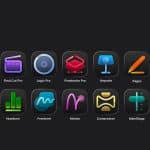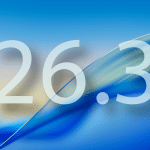Choosing the right thesis statement generator can feel like looking for a needle in a digital haystack. College students and busy researchers want quick, clear, and reliable tools that turn scattered ideas into a single, powerful sentence. Within the first clicks, a well-built generator does more than save time; it also teaches how to shape an argument. One popular option, SpeedyPaper, offers a fast online builder that guides users step by step, showing how each choice changes the core claim. By testing a service like SpeedyPaper early, writers gain confidence and see instant results. Still, with so many sites promising magic formulas, it is smart to compare features before settling. This guide explores the best services available, highlights the strengths of each thesis writer platform, and explains the types of thesis statement you might need. From AI-driven apps to classic templates, every tool covered here aims to help users craft an all-encompassing thesis without stress.
Why a Strong Thesis Statement Matters
A paper’s thesis is its guiding star. Without a clear statement, readers wander, and writers often drift off course. Good services remind users that the thesis is not just any sentence; it is a promise of what the essay will prove. When students use a thesis statement generator, they get instant feedback on focus, tone, and scope. That feedback keeps them from making common errors like piling on too many ideas or staying too vague. Teachers look for a single, specific claim that hints at structure, evidence, and even counterpoints. A service that highlights these checkpoints saves time during the drafting stage and later while revising. Beyond grades, a firm thesis trains young thinkers to argue logically in real life. Whether preparing a blog, a speech, or a lab report, the same rule applies: know the point and defend it. A trusted generator or human thesis writer can serve as a coach, pushing writers toward sharper reasoning every time.

What Makes a Good Thesis Statement Generator?
Not all online builders are equal. Some spit out cookie-cutter lines, while others guide users through thoughtful choices. A quality generator begins by asking basic questions: What is the topic? Which side is the writer on? Why does it matter? These prompts break big thoughts into manageable chunks. Then the tool rearranges answers using clear syntax and active verbs. A strong service also lets users adjust length, tone, and complexity with a simple slider or menu. Real-time previews help students see how each tweak changes the claim. Another mark of excellence is credible examples. When a platform shows five sample theses for different types of thesis statement, it teaches by model. Accessibility matters, too. Mobile-friendly pages and built-in citations keep research moving even on a phone. Finally, privacy must be front and center. Reliable providers delete drafts after a session, guarding sensitive material. When these features combine, a thesis writer tool turns from mere gadget into an essential companion for any academic project.
Overview of Top Online Generators
The market for thesis statement generator platforms keeps growing, and each site claims to be the fastest or smartest. A quick tour, however, shows clear differences in design and output quality. SpeedyPaper’s free tool stands out for its clean layout and guided prompts, making it friendly for first-time users. Next is Scribbr, which focuses on academic tone and even flags passive voice. Another favorite, Thesis-Builder, lets writers test several angles at once, then compare the results side by side. For those who prefer AI flair, ChatGPT-based add-ons can suggest fresh vocabulary and tighter phrasing, though they still need a human eye. Finally, Canva’s writing assistant pairs visual aids with text, helping visual learners connect ideas. What unites these services is an emphasis on customization. Users can choose subject area, claim strength, and outline hints before hitting “create.” Most also offer examples of different types of thesis so newcomers can match the correct format. By sampling more than one generator, writers can mix features and craft a sentence that truly fits their project.
Deep Dive: AI-Powered Thesis Writer Tools
Artificial intelligence has entered nearly every corner of education, and the thesis writer niche is no exception. AI-powered platforms go beyond templates by analyzing large databases of academic language. When a student enters a topic, the software predicts patterns found in peer-reviewed journals, then shapes a tentative claim. This prediction step means the generated line often sounds more natural than a formulaic output. Many tools also explain why each phrase appears, teaching users in real time. For instance, an app might flag the causal term “because” and suggest adding evidence right after it. Some AI services even adjust suggestions based on the types of thesis statement preferred by specific disciplines, such as analytical, expository, or argumentative. While machine learning adds convenience, transparency remains vital. The best sites show confidence scores and suggest manual edits, reminding writers that responsibility stays with the human. Used wisely, AI becomes a tutor that shortens the path from brainstorm to polished thesis without stealing the student’s voice.
Comparing Types of Thesis Statement Tools
Every writer’s goal is the same—craft a single, memorable claim—but their needs differ. Understanding the main categories of tools helps match service to situation. Template-based generators rely on fixed sentence frames. These work well for middle school essays but may feel stiff in advanced classes. Guided question tools ask a series of short prompts and then blend answers into a thesis. They balance structure with flexibility, making them a good bridge to higher-level writing. AI-driven engines, discussed earlier, adapt to tone and discipline at lightning speed. Finally, full-service platforms pair a live thesis writer with software feedback, offering human insight alongside quick automation. When comparing, focus on accuracy, customization, and learning value. A biology major tackling an argumentative project might want a generator that cites studies, while a history student composing an analytical piece may prefer clear chronological hints. By matching the types of thesis statement tools to the project’s demands, writers save time and improve clarity with far less trial and error.
Understanding Different Types of Thesis
Before picking any service, writers should know which kind of thesis their assignment requires. The most common categories include argumentative, analytical, expository, and narrative. An argumentative thesis makes a claim that someone could dispute, like “School uniforms reduce bullying.” Analytical theses break a topic into parts and explain the relationship among them. Expository statements simply present facts, while narrative versions guide storytelling pieces, often in creative writing courses. Knowing these differences saves time when using a thesis statement generator because the right template will emphasize suitable verbs and structures. For example, an argumentative generator may prompt the phrase “should” to signal a stance, whereas an analytical tool might swap it for “examines.” Teachers often provide rubrics that list the expected types of thesis, so reviewing those sheets first can prevent rewrites later. In short, understanding the purpose behind a thesis is just as crucial as drafting the line itself, and clear definitions keep writers from mixing styles by mistake.
Tips for Getting the Most from Generators
Even the best software cannot replace a thoughtful mind, but a few smart steps boost results. First, enter precise keywords instead of broad phrases. “Renewable energy in rural India” narrows focus far better than simply “energy.” Second, review the previewed sentence for balance. A thesis should not be longer than two lines in standard formatting, yet it must include topic, stance, and reason. If the generator’s output rambles, trim extra clauses. Third, compare versions. Most sites let users hit “refresh” to see alternates; saving two or three drafts helps mix the strongest parts later. Fourth, match the generated line to the assignment’s types of thesis statement. Teachers notice when an argumentative claim shows up in an expository paper. Finally, proofread for grammar, tense consistency, and tone. A quick read-aloud detects awkward wording that software may miss. Using these simple moves, students turn a powerful thesis statement generator into a true writing advantage rather than a shortcut that needs heavy repair.
Common Mistakes and How Services Help
Writers often stumble in predictable ways when drafting a thesis. Vague language tops the list. Phrases like “many things” or “in society today” weaken focus. A generator highlights these fillers and replaces them with sharper nouns. Another frequent flaw is the missing “because” clause. Without a reason, the statement stands unsupported. Quality tools prompt users to add a short rationale, turning a bland claim into a persuasive one. Some students forget to limit scope, attempting to cover the entire history of an issue. By posing guiding questions, a service nudges them toward a manageable slice. Mixing verb tenses is another trap; automated checkers within generators flag inconsistencies instantly. Lastly, writers sometimes pick the wrong types of thesis, using an explanatory stance when the assignment demands argument. Good platforms categorize outputs, reducing confusion. Through instant feedback and clear correction, thesis writer services transform common mistakes into quick learning moments, saving users from lengthy revisions later in the writing process.
Final Thoughts and Choosing the Right Service
Finding the perfect thesis help is less about flashy ads and more about matching personal needs to solid features. First, review assignment guidelines and identify the required types of thesis statement. Second, test two or three platforms with a sample topic to feel the flow of each interface. Note how clearly the generator explains changes and whether it offers export options like Word or Google Docs. Speed also matters when deadlines loom; some sites deliver results in seconds, while others need longer analysis. Privacy, cost, and customer support round out the checklist. An affordable monthly plan is useless if data storage feels unsafe or live chat vanishes during finals week. Ultimately, the best thesis writer tool is the one a student will actually use, not the most advanced one gathering digital dust. By approaching the search with clear criteria and a willingness to experiment, writers can lock onto a service that turns idea sparks into an all-encompassing thesis statement with confidence and ease.












